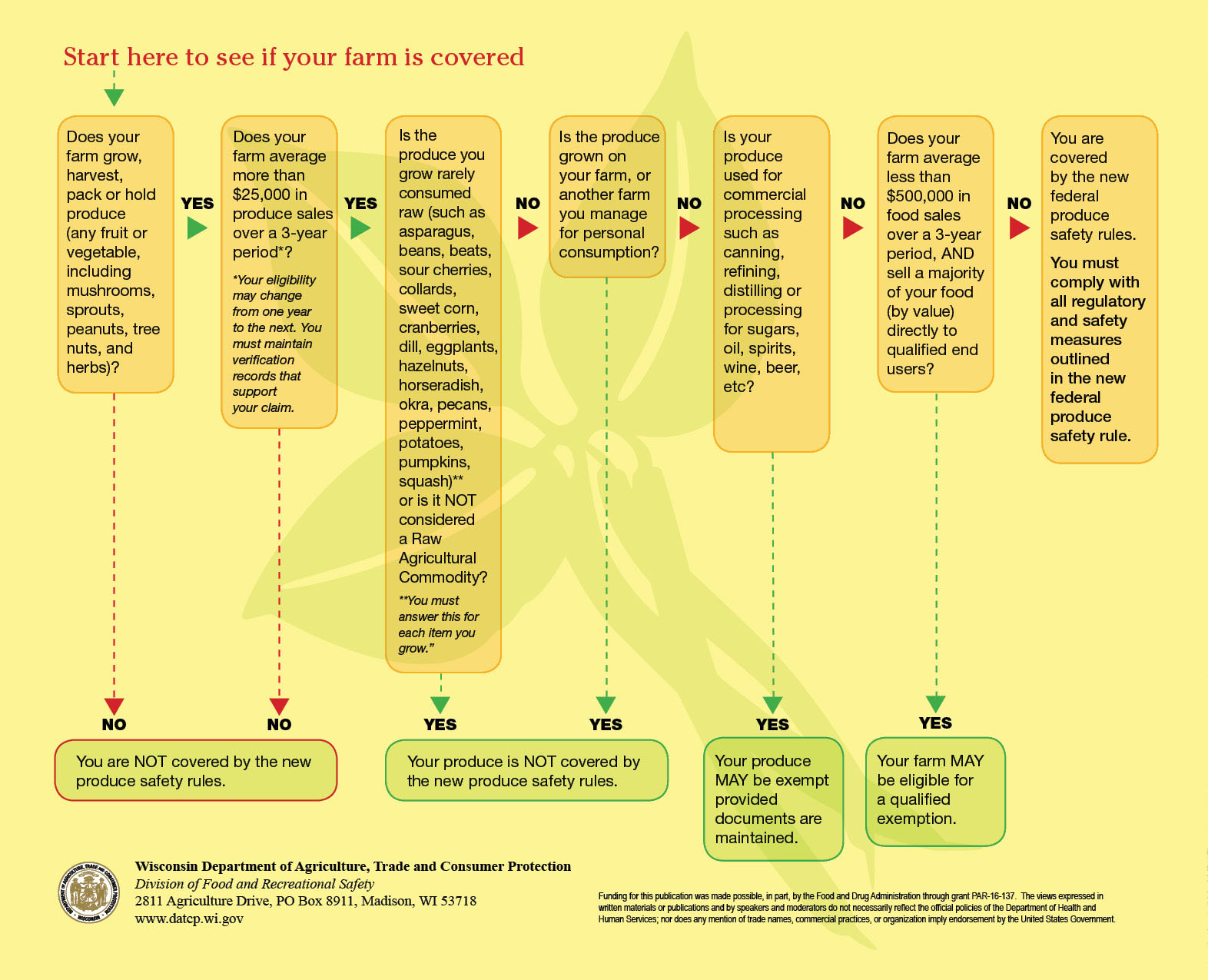The Safe Wisconsin Produce Program introduces new federal produce safety regulations to Wisconsin farm produce growers. Some farms will be covered by the new produce safety rules, others will not. Before determining if your farm is or is not covered, it’s important to understand how the rules define significant terms.
Commercial Processing is any process that kills pathogens. You must maintain documents, statements, or written assurances as proof.
Covered Produce includes most fruits and vegetables, but does not include food grains (such as wheat or barley) or oil seeds (like flax seed or soybeans).
Farm is any operation under one management in one general location devoted to growing crops and/or raising animals.
Food is defined by the FDA as “articles used for food or drink for man or animal; chewing gum; and articles used for components” of food.
Harvest, Pack, or Hold refers to activities on raw agricultural commodities, including cutting, trimming, sorting, grading, placing food into containers, transportation, and storage in warehouses, cold storage, silos, and elevators.
Personal Consumption is produce grown by you on your farm solely for yourself and not sold to others.
Produce Sales are averaged each year using the 3 previous years, and are adjusted for 2011 dollars. Your eligibility can change from one year to the next.
Qualified End Users are consumers that will eat your produce, or restaurants or food retail establishments in the same state or less than 275 miles away.
Rarely Consumed Raw is produce that usually needs to be cooked or processed before you can eat it.
Raw Agricultural Commodity means any food in its raw or natural state, including all fruits that are washed, colored, or otherwise treated in their unpeeled natural form prior to marketing.
How do I prove my farm is not covered?
Maintain verification documentation from the previous 3 years that show you did not report any produce income, or your produce income averaged less than $25,000 over the 3-year period.
How do I prove my produce is not covered?
Maintain verification documentation from the previous 3 years that show the type of produce grown is not covered, or that you did not sell any covered produce (see definitions).
My produce is eligible for an exemption, what does that mean?
Produce is exempt if it is going to be processed in a manner that includes a “kill step” that reduces pathogens. You must maintain documents that accompany your produce ensuring commercial buyers know your produce is “not processed to adequately reduce the presence of microorganisms.” You must also maintain documents annually from your commercial produce buyers that detail the steps they took to reduce pathogens.
My farm is eligible for a qualified exemption, what does that mean?
Your farm with qualified exempt produce must still meet certain modified requirements, including following packaging guidelines, and disclosing the name and the complete business address of your farm either on the label of the produce or at the point of purchase. Your farm would also be required to establish and keep certain verification documentation.
My farm is fully covered by the produce safety rules, what do I do now?
The FDA has staggered the compliance dates, based on the size of farms, to provide additional time for small and very small farms to come into compliance with the requirements. During that time, we will offer educational opportunities so you can learn how best to bring your operations up to produce safety standards. If you need assistance with understanding the rules or other aspects of the Safe Wisconsin Produce initiative, you can contact the Produce Safety Team anytime at (608) 224-4511 or email us at safeproduce@wi.gov.
